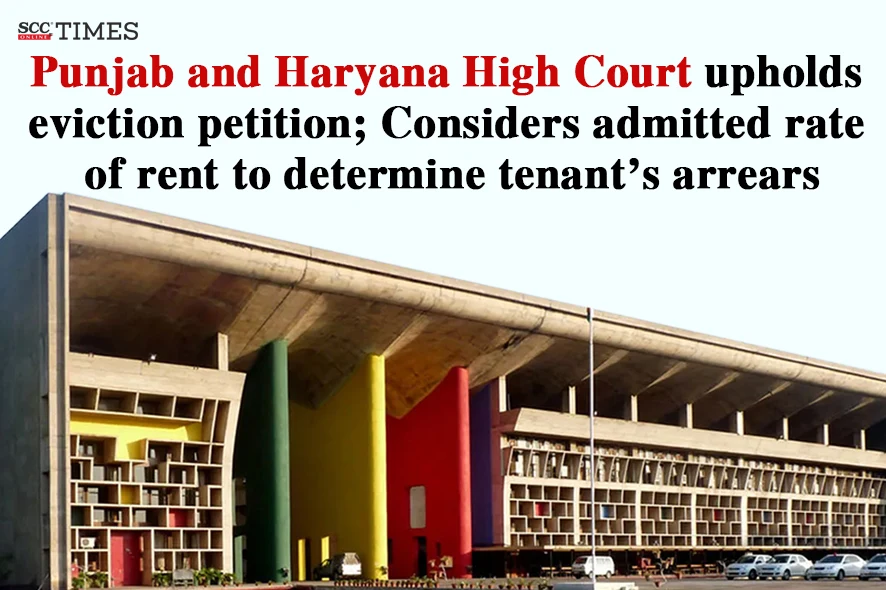Punjab and Haryana High Court: In a revision petition filed by the petitioner (‘tenant’) against the order passed by the Appellate Authority dismissing the appeal filed against the eviction order against him passed by the Rent Controller, a Single Judge Bench of Vikram Aggarwal, J. held that increase clause could not be considered since the rent note was unregistered, thus, only the admitted rate of rent was considered to find that the tenant was in arrears of rent.
Further, the Court upheld the eviction petition and stated that it is well settled that in revisional jurisdiction, interference against the concurrent findings is required only when the findings are perverse.
Background
In the present case, the respondent (‘landlord’), being co-owner of the entire complex, was the owner of the demised premises. It was maintained that all the shops situated in the said complex had been mutually partitioned by the co-owners in a family partition. The demised premises had fallen to the exclusive share of the landlord and due intimation in this regard had been given to the tenant.
It was averred that the demised premises had been taken on rent by the tenant at Rs 5500 per month in August 2003 with a 10 per cent increase in the existing rent after every three years. The tenancy commenced in September 2004, and the tenant was stated to be in arrears of rent from February 2017 to November 2017 as a result of which, the petition was filed under Section 13 of the East Punjab Urban Rent Restriction Act, 1949 seeking eviction of the tenant from a shop in the site plan.
The tenant had raised objections regarding concealment of material facts and admitted that that he was a tenant on the demised premises, having taken the same on rent from another person (‘SK’), who, however, denied the relationship of landlord and tenant between him and the landlord.
The Rent Controller allowed the eviction petition holding that the relationship of landlord and tenant had been proved. The appeal preferred against the said order of eviction, was dismissed by the Appellate Authority. Thus, the tenant approached the Court.
Analysis and Decision
Considering the facts of the case at hand, the Court opined that in the interest of parties, it deemed appropriate to look into the relationship of landlord and tenant even though the petitioner had raised no question regarding the same.
The Court noted that the landlord had placed reliance upon the family partition as per which, the demised premises had fallen to his share and notices regarding it were placed on record showing that the landlord had called upon the tenant to pay the rent concerned. The Court, thus, held that under the given circumstances, it was rightly held by the Courts below that the relationship of landlord and tenant duly stood proved.
Further, the Court held that once the relationship of landlord and tenant was proved and the rate of rent was also proved, it was rightly held that increase clause could not be considered since the rent note had been executed between SK and the tenant and the same was unregistered. Therefore, only the admitted rate of rent was considered, and it was found that the tenant was in arrears of rent. Thus, the Court opined that no opportunity for tendering the rent was required to be given, taking into account the settled law that once the relationship of landlord and tenant was denied, no requirement of assessment of provisional rent would arise and that if after such denial, the relationship was proved to have existed and the tenant was found to be in arrears of rent, then no further opportunity would be granted for payment of rent and only eviction order would follow.
Accordingly, the Court observed that both Courts below, therefore, committed no illegality or irregularity in allowing the eviction petition and even otherwise, it was well settled that in revisional jurisdiction, interference against the concurrent findings was required only when the findings were perverse. Thus, the Court dismissed the revision petition.
[Bikram Singh v. Mohinder Pal, 2025 SCC OnLine P&H 7882, decided on 9-9-2025]
Advocates who appeared in this case :
For the Petitioner: Jagdish Mahal, Advocate
For the Respondent: Simran Singh, Advocate


